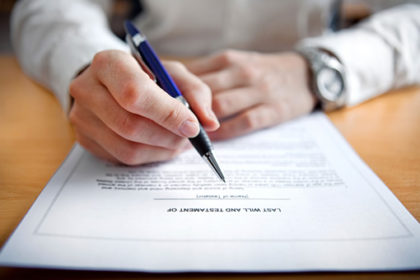
After a striking RTE Prime Time investigates programme into some of the difficulties vulnerable people in care can be confronted with, it is natural to consider what preparations you can make now to protect yourself in the future. One of these safeguards, is an enduring power of attorney.
As said in an article today in the Irish Times –
“What did come through was the lack of rights of next of kin when a family member loses capacity, unless an enduring power of attorney has been signed. And with 25,000 extra people turning 65 every year, the issues the families in the programme face will confront many more people in the years to come. It could be you. A chilling thought.”
An Enduring Power of Attorney can be crucial to protecting your interests, as you decide them, when you lose capacity to make legally binding decisions.
We answer some of the common questions about Enduring Powers of Attorney below
What is an EPA and why would I need it?
If you were to become incapacitated through disability or an illness, there is a risk that your assets could be frozen because the court would question your capacity to manage them. To avoid you should, while in good health, create an Enduring Power of Attorney (EPA), sometimes known as a “living will”.
[soundcloud id=’245238568′]
What Powers does the appointed Attorney have?
The Power of Attorney only takes effect when a person becomes mentally incapacitated and it transfers authority to look after the money and assets to the Attorney, once certain steps are taken.
By creating an Enduring Power you are not prevented from dealing with your money and assets, the EPA only activates if you become mentally incapacitated.
An Enduring Power of Attorney can be tailored to your needs and can give the Attorney a specific task such as selling property or managing a bank account.
Alternatively it can be general, giving the Attorney the power to do anything that you yourself can do with your property or money.
You can, however, restrict these general powers by, for example, forbidding the sale of your home.
This general type could also enable your Attorney to make “personal care” decisions e.g. where you reside , what form of medical treatment or diet and dress.
Who do you appoint as Attorney?
You can appoint anyone you wish to act as your Attorney – your spouse, a family member or a friend and you can select an alternative Attorney in case your first choice is unwilling or unable to act.
You can also appoint more than one person and specify that certain decisions must be made jointly and that others be made by an individual Attorney.
The choice of Attorney(s) is a personal matter but a good deal of thought needs to be given to the nomination. You need to ask yourself is this person suitable for the job? Are they trustworthy and do they have the skills to manage my affairs and make decisions for me?
How do I create an EPA?
You will have to consult your Solicitor and your Doctor.
Your Solicitor will prepare the documents for you after consultation with you and decide whether a specific or general Power of Attorney is more suited to your needs.
Your Attorney will need to be advised about the role and duties.
Two independent people must be notified that you have created the Power of Attorney.
How does the Power of Attorney get activated?
The Attorney must apply to the Wards of Court office for registration of the EPA if the Donor becomes mentally incapacitated.
The EPA must also be served on the person who created the Power and the same two persons who were notified of its creation.
This ensures that the system is open and transparent and allows for objections if there are concerns that the Attorney may be acting inappropriately.

